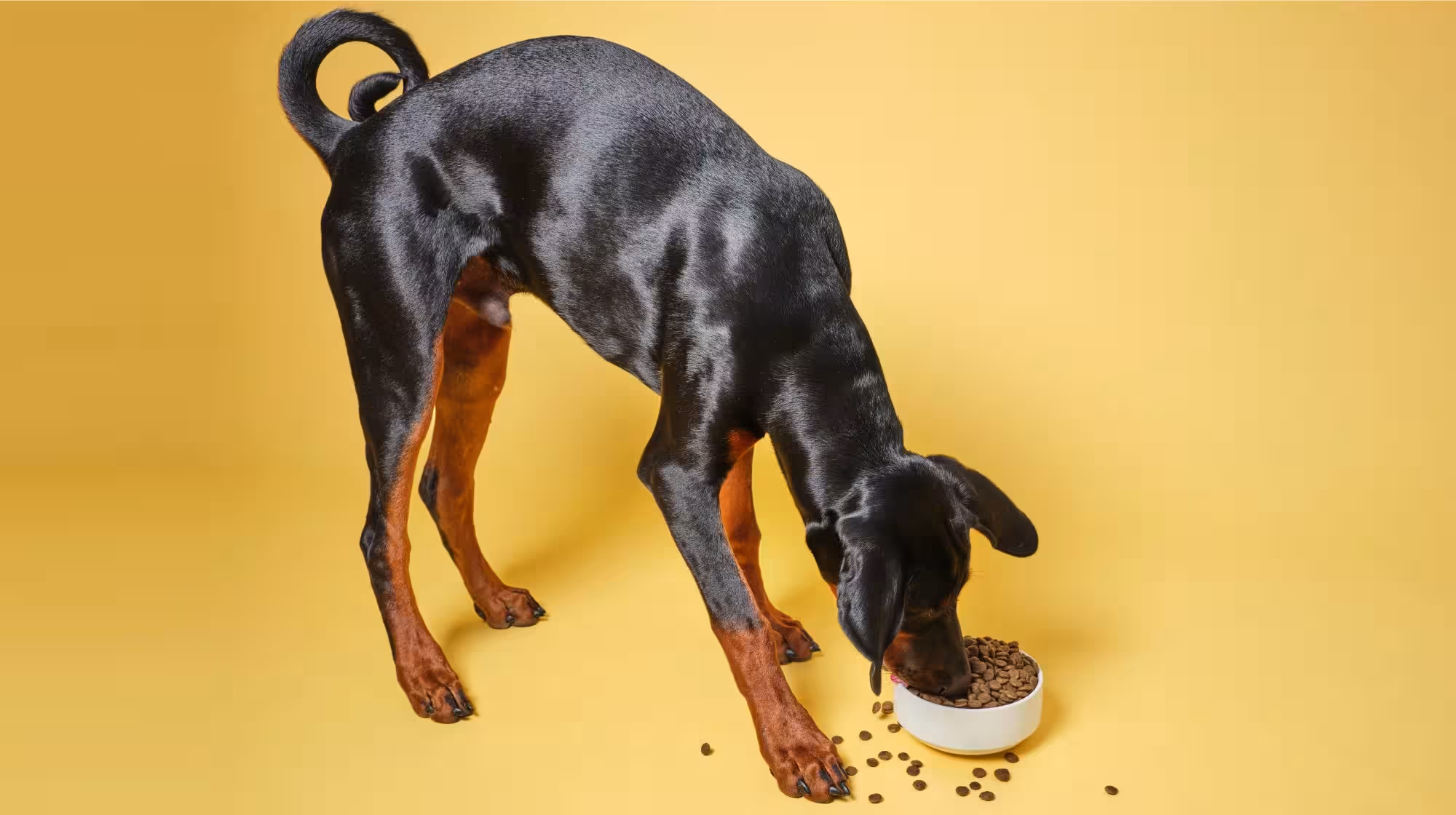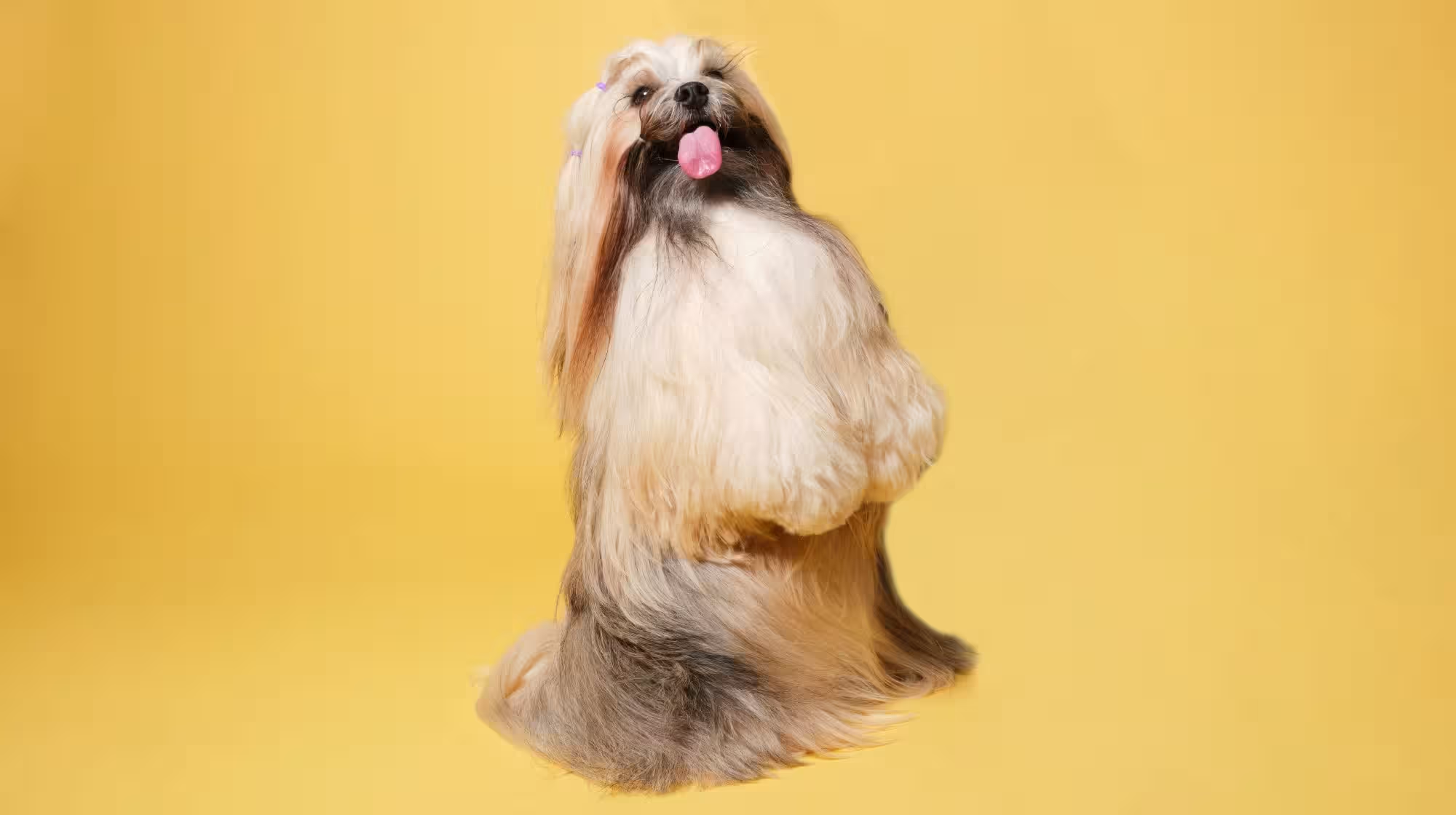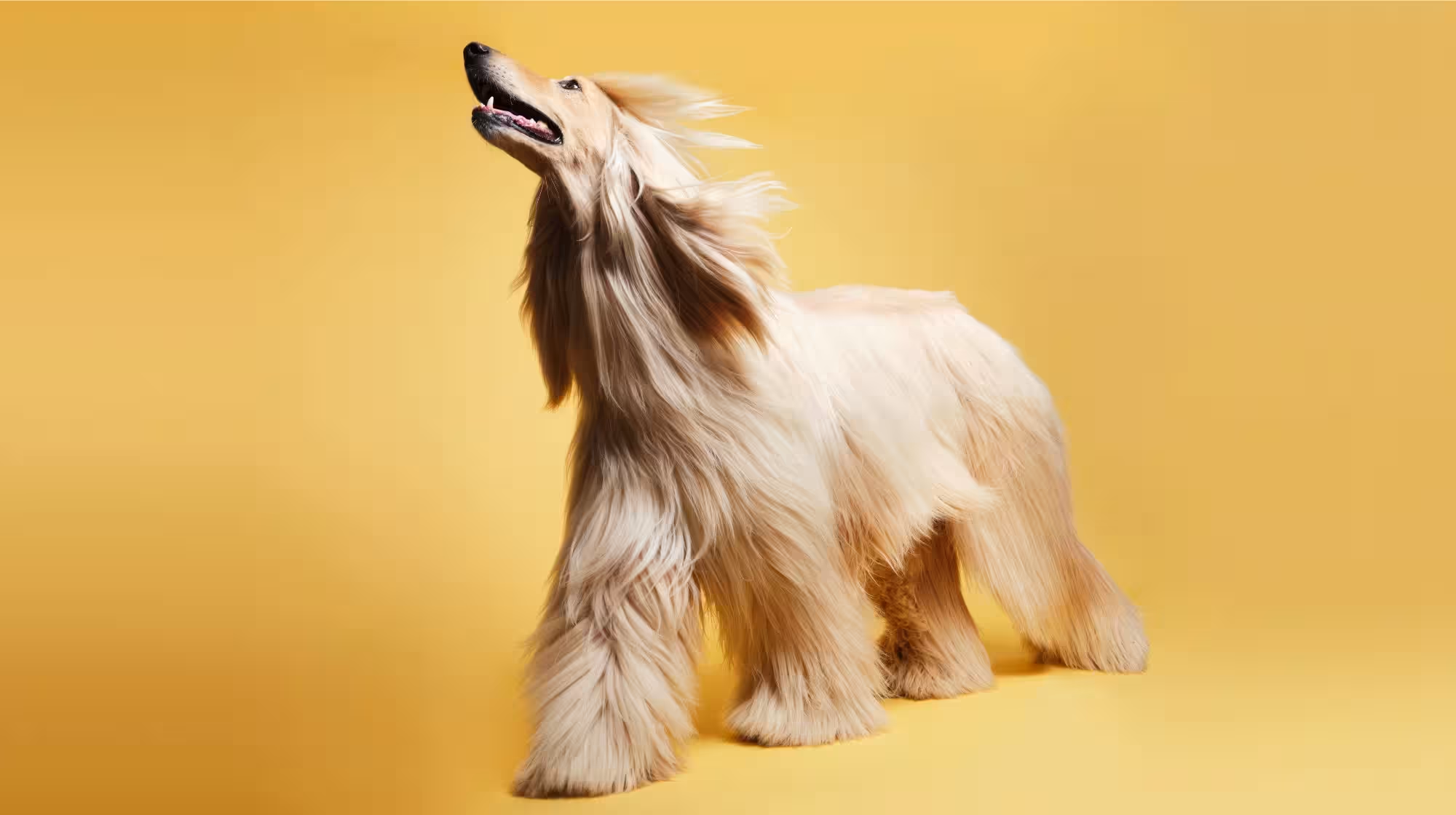They may be a lot hairier, but in a lot of ways, dogs are like us. They function best on nutritious and varied foods, feel great after exercise, and have an added spring in their step when they look particularly well groomed.
Achieving that gorgeous, just-groomed look is a key part of being a responsible dog parent - but there are plenty of ways to get their coat looking and feeling as glorious as a Crufts contestant without a weekly visit to the doggy beauty parlour.
Read on for our easy, expert advice on improving your dog’s coat condition and skin, for flouncy fur that begs for admiration.
What does a dog’s coat condition mean?
You may think your dog’s hairdo is intended purely for warmth and a side of cuteness, but it’s actually a big indicator of physical health. Just like humans, dogs have different hair types - from curly, fluffy or coarse to long-haired and short-haired - and therefore, variable signs of whether their coat is in a good or iffy condition. Be sure to read up on how your dog’s coat should look and feel based on their breed, and do everything possible to ensure they feel light, comfortable and relaxed in their own skin.
What does it mean if my dog’s coat is shiny?
A shiny coat on your dog is ideal - especially if strangers slow down and swoon in the street - but at the very least, a healthy dog’s coat should be as soft as possible and free of dandruff and greasiness. This happens when your dog’s coat and skin is producing just the right amount of natural oils, and is generally in good health.
Don’t worry if your dog’s fur is more matte than glossy, though, as there are plenty of good reasons why their coat might not shine. White fur doesn’t reflect light like darker coloured fur, for example, and it’s tough to achieve a shine on dogs with a short and wiry coat. Other dogs simply love to roll about in the dust and dirt, so if you get any amount of shine on their fur, it may only last a few minutes - but this doesn’t necessarily mean that their coat isn’t healthy.

My dog’s coat is dry, or their skin is itchy and flaky?
On the other hand, if your dog’s hair is dry, lacklustre or brittle, it could mean that something is wrong. Dry fur, excess shedding, dandruff and itchy skin are all signs that your dog’s diet may need an adjustment. Otherwise, they could have an allergy to something in their environment, or a skin infection such as seborrhea (for which a dog overproduces oil, causing the skin to be red, flaky and itchy).
Keep an eye out for signs of discomfort in your dog; if their coat or skin needs attention they’ll likely scratch more and have trouble relaxing.
What contributes to a dog’s healthy skin and coat?
The good news is that with regular care, it’s easy to get your dog’s gorgeous locks looking and feeling in tip-top condition.

The ideal coat and skincare routine for dogs includes regular brushing, bathing, grooming and styling (just so that they don’t have fur in their eyes or dragging at their feet). You should also feed your dog a varied and nutritious diet, perhaps including supplements; ensure they get regular exercise to boost their physical and mental wellbeing; and of course, give them lots of love.
How to make your dog’s coat shiny & improve your dog’s skin
Let’s get more specific with ways to improve your dog’s coat condition…
Bathe your dog at a suitable frequency
Dogs don’t need to be bathed as much as humans - their delicate skin needs time to produce its own natural oils, and they’re relatively adept at cleaning themselves. Bathing your dog every three months is a fail-safe option for most breeds - unless your dog gets particularly messy on a regular basis (you live in the muddy countryside, or if it’s long-haired, for example) and could benefit from a bath more often.
Regularly brush your dog
A regularly brushed dog is a soft and shiny dog, so be sure to get the comb out as often as you can, despite how wriggly or resistant your pooch may be. Brushing every couple of days is ideal, whether they have stubby, sheep-like or swishy fur.
Feed your dog a complete and balanced diet
Sure, we’re obsessed with using dog food for a healthy coat at Pooch & Mutt - but there really is no greater cure for your dog’s ailments than balanced, natural foods packed with varied ingredients and nutrients. If your dog’s pet food is of a more basic variety, or if you’re feeding your dog human fare (mostly cooked chicken, for instance), it could be that their diet is lacking essential nutrients and causing their coat to appear lacklustre.
Give your dog skin and coat supplements
Sometimes tracking down specific nutrient-rich foods isn’t convenient, so be sure your dog is getting all the goodness they need by adding supplements to their diet. There is a range of powerful skin and coat supplements for dogs that are tasty and easy to administer…
Fish oil and omega 3 for dogs
Fish oil is our number one recommendation for a gorgeous coat as it’s a real doggy wonder product. It’s rich with omega 3 fatty acids essential for a nourished coat and healthy skin - so much so, that a dry coat and itchiness can be indicative of an omega 3 deficiency in your dog’s diet. As a powerful anti-inflammatory, omega 3 is also great for dogs’ joints, mobility and heart health (1)(2), so you can’t go wrong with a supplement such as our Salmon Oil for dogs .
Zinc for dogs
Zinc is an important mineral in a dog’s diet, not only beneficial for ensuring a beautiful coat and skin, but also good thyroid function and healthy immunity. As dogs don’t produce zinc in their bodies independently, dry, flaky skin in dogs can be a sign of a zinc deficiency (3). Feed your dog zinc via fresh meats such as turkey, beef, pork or lamb, or top up with a tasty supplement you can easily add to their meals.
Biotin for dogs
Biotin for dogs is a complex B vitamin proven to improve dogs’ coat and skin (4), as well as essential for maintaining processes in your dog’s body such as muscle formation, healthy digestion and thyroid function. As well as other signs, a biotin deficiency can show up in dogs through dry, scaly skin, a scruffy or unkempt appearance, brittle fur, skin lesions and excessive shedding.
Raw offal such as kidney, liver and heart are great natural sources of biotin for dogs, but if your dog isn’t keen on raw foods, a supplement can work just as well. Our probiotic supplement for healthy skin and coat contains biotin, zinc and fish oil and other antioxidants in a convenient powder format, so is a great place to start.
Skin & Coat
Support healthy skin and a shiny coat with our Skin & Coat range. Carefully selected ingredients help ease itching, boost skin health, and provide a glossy coat — for the ultimate glow-up.
-

 from
fromCurrent price: £15.99
Skin & Coat Dry Food For Dogs -

 from
fromCurrent price: £3.99
Skin & Coat Probiotic Meaty Treats -

 from
fromCurrent price: £47.99
The Skin & Coat Bundle -

 from
fromCurrent price: £11.49
Salmon Oil For Dogs -

 from
fromCurrent price: £10.99
Bionic Biotic -

 from
fromCurrent price: £18.99
Gut-Skin Support Supplement
Protect them against fleas and parasites
A no-brainer, but the last thing your dog’s skin needs is a flea or tick infestation. Flea treatments are easy to sort out at your local vet and pays for itself multiple times over when it comes to your dog’s (and your) comfort - so be sure to nuke those itchy pests at the source.
Talk to your vet

After following the above steps, your pooch should be looking and feeling pampered, soft and fancy free - but if their coat and skin still seems less than its best, talk to your vet about other potential causes of the problem.
If you have any specific questions about your dog’s coat and skin, get in touch with us today. For some tasty supplements to improve your dog’s coat and skin, try our Bionic Biotic or Salmon Oil for Dogs supplements. We also offer a full Skin & Coat Bundle which contain vet-approved food specifically for a soft & shiny coat, Salmon oil supplement and Skin & Coat tailored treats.




